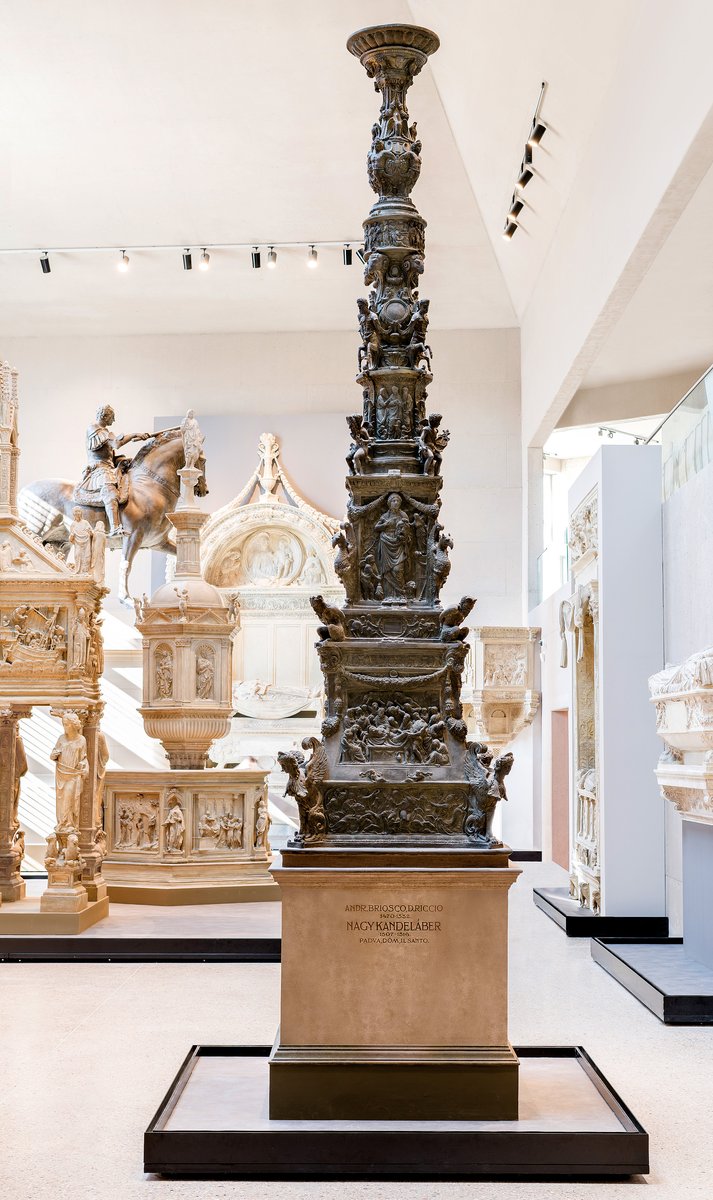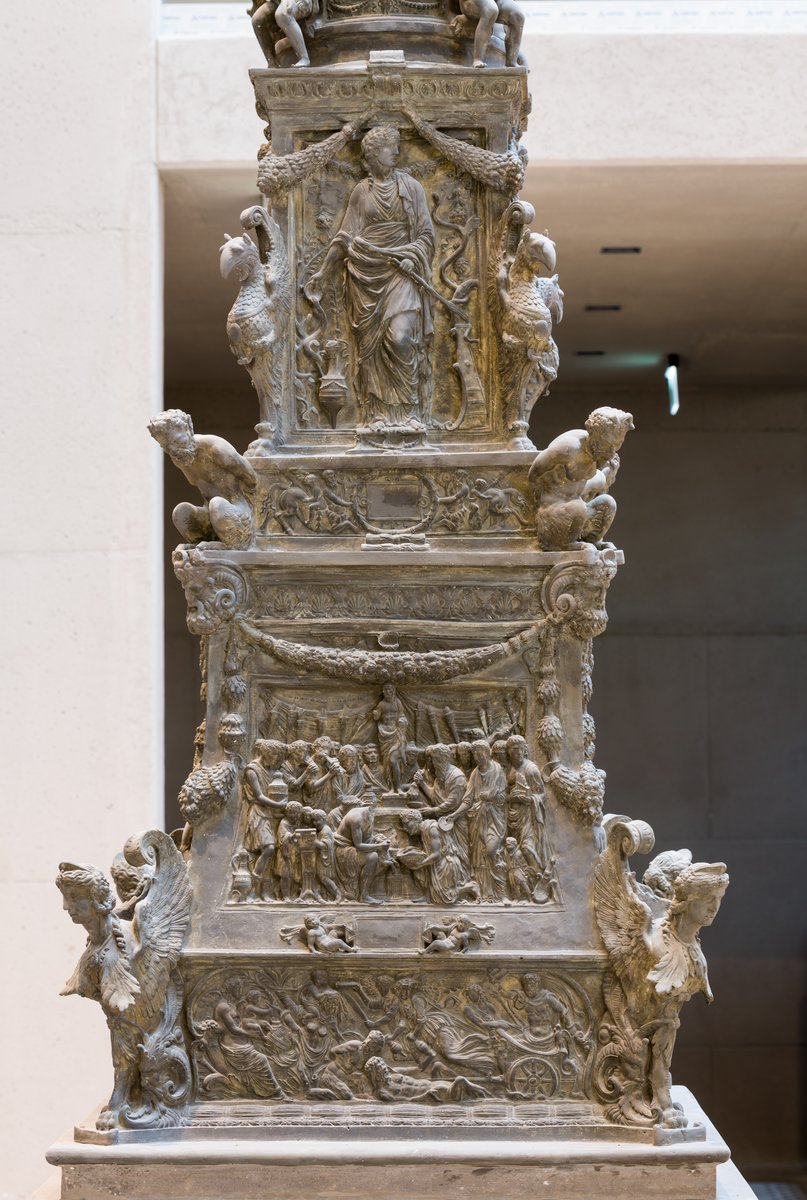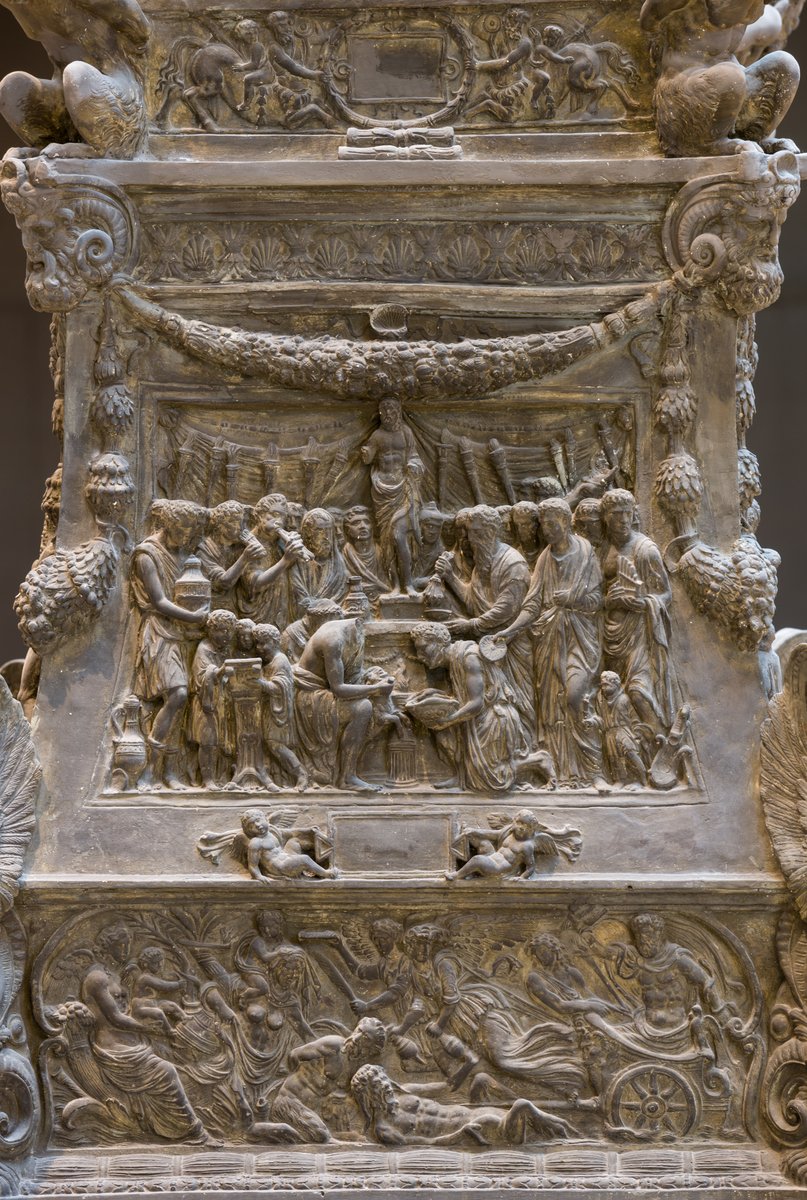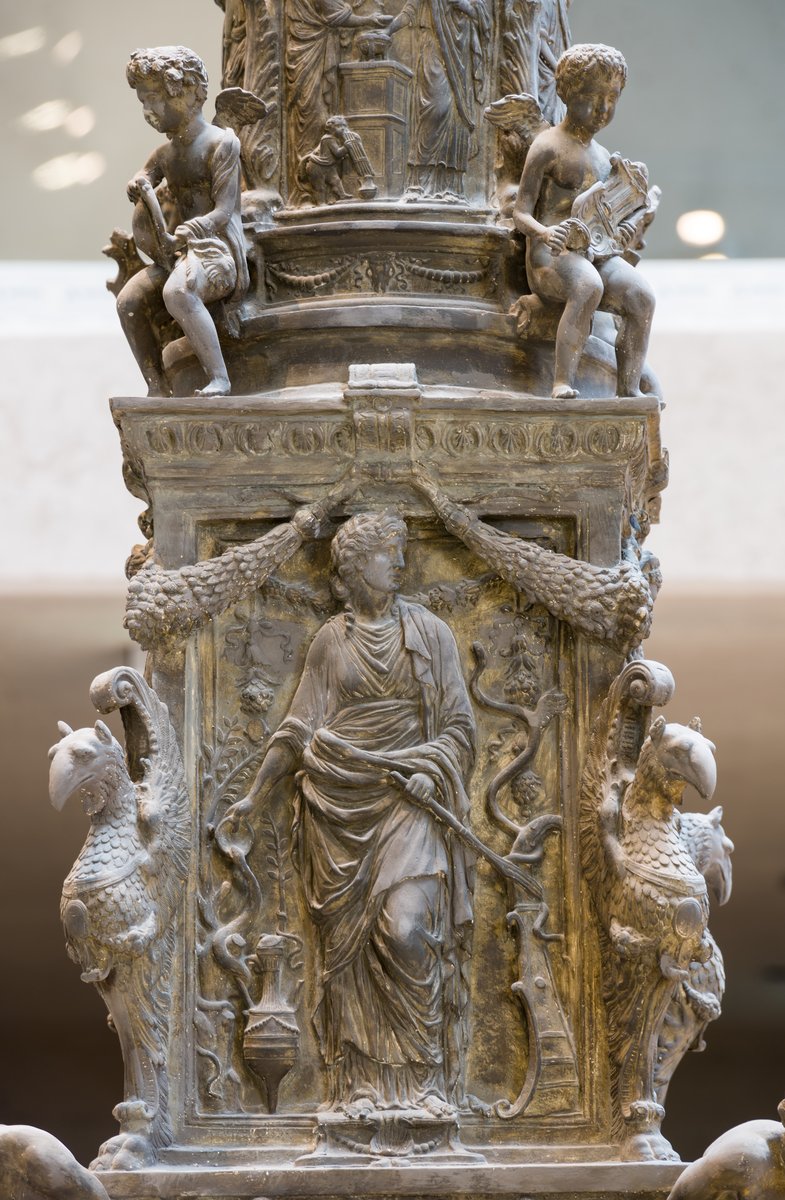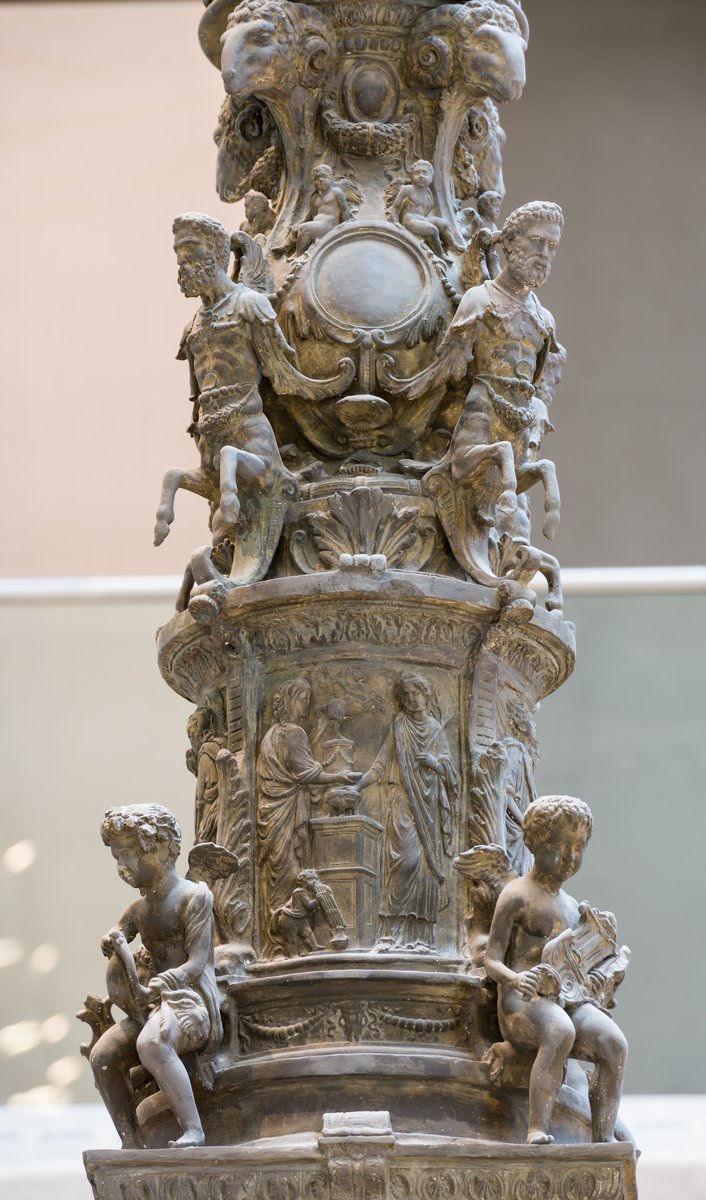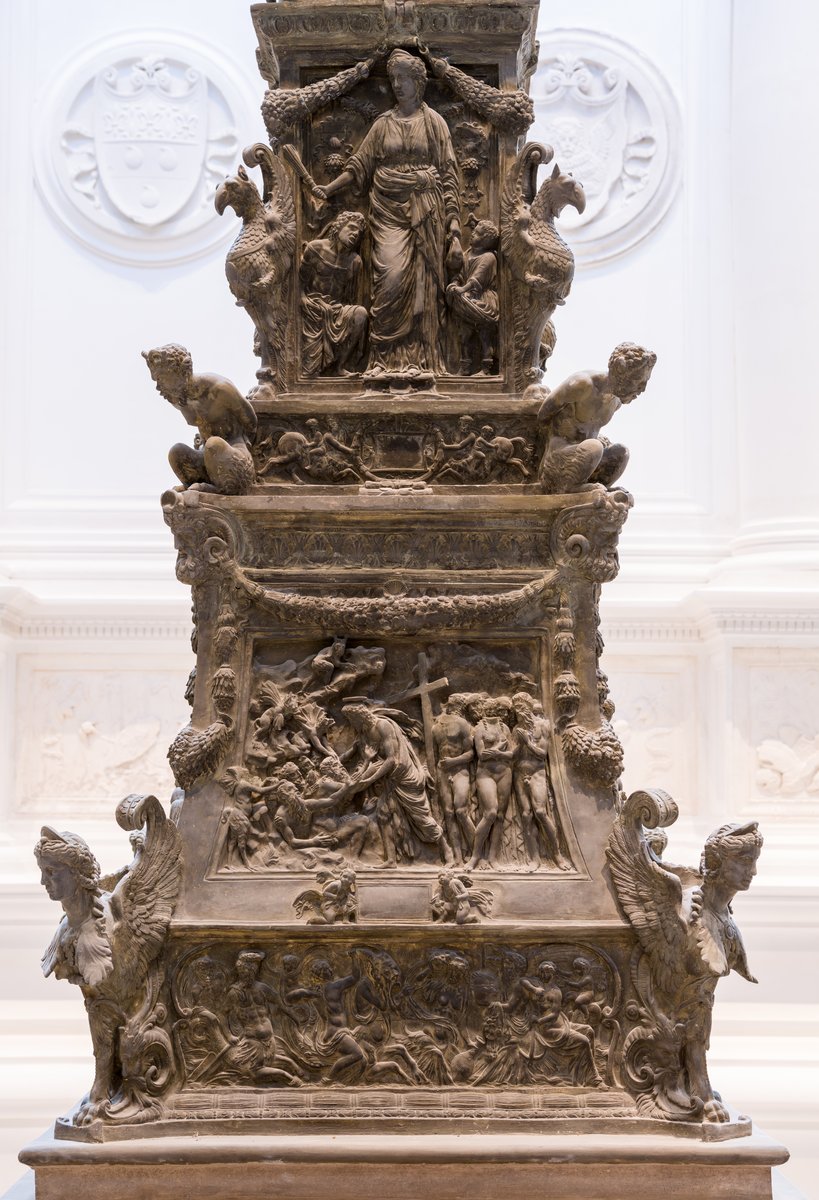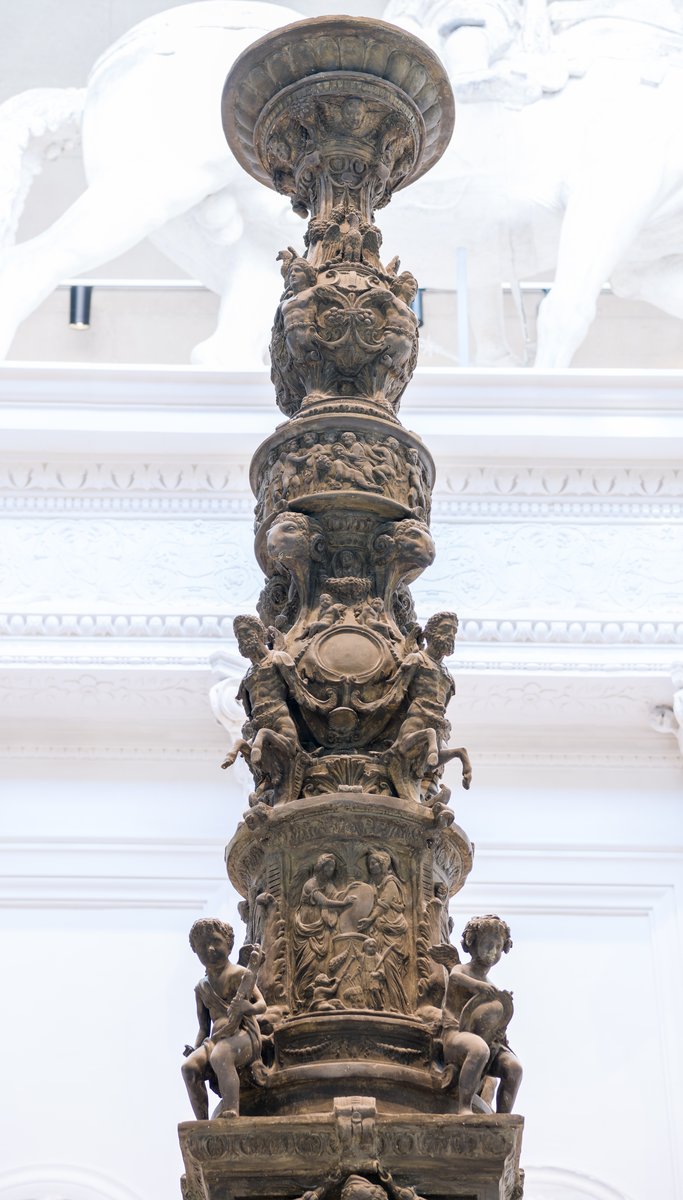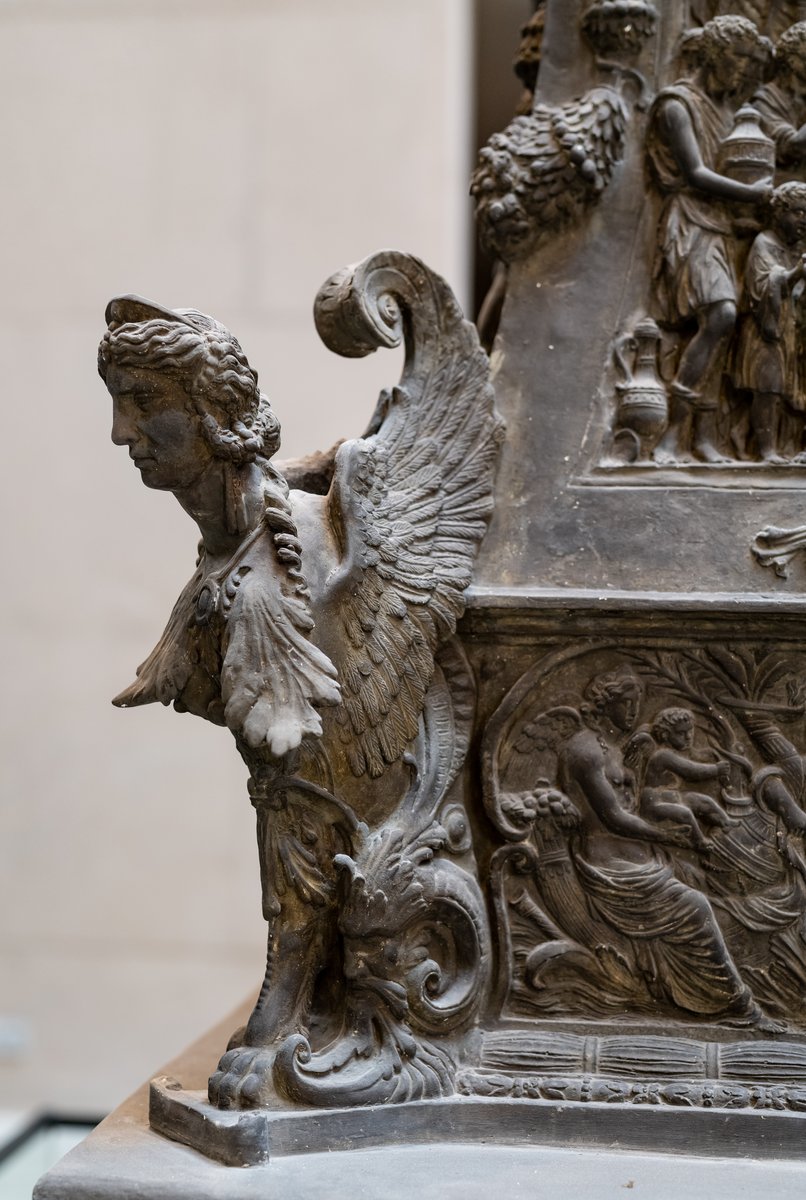Paschal Candlestick
Riccio , Carlo Campi (cast maker)- Artist
-
Riccio
Trento, 1470 – Padua, 1532
Carlo Campi
(cast maker)
Milánó
- Dated
- between 1507 and 1515 (original), 1907 (cast)
- Classification
- sculpture, plaster cast
- Medium
- plaster cast
- Dimensions
- 400 × 111 × 111 cm
- Inv.no.
- Rg.149
- Department
- Sculptures - Plaster casts
- Current Location of the Original Artwork
- Italy, Padua, Basilica of Saint Anthony of Padua
The Paduan sculptor Andrea Briosco, also called Riccio on account of his curly hair, made the enormous paschal candelabrum for the Basilica of Saint Anthony in Padua between 1507 and 1515. The iconography of the bronze candelabrum, which is almost four meters in height, seems to have been devised by the Paduan humanist Giambattista De Leone. On the reliefs and statuettes of the pyramidal candelabrum, motifs from ancient Greece, Rome, and Egypt appear alongside Christian scenes. The candelabrum is one of Riccio’s masterpieces; its sphinxes, tritons, satyrs, centaurs, and griffins appear in many later works (even as individual figures), probably to meet the demand from private collectors. Commissioned by the museum in 1907, cast by Carlo Campi in Milan. It was exhibited in 1908 in the Renaissance Hall.
